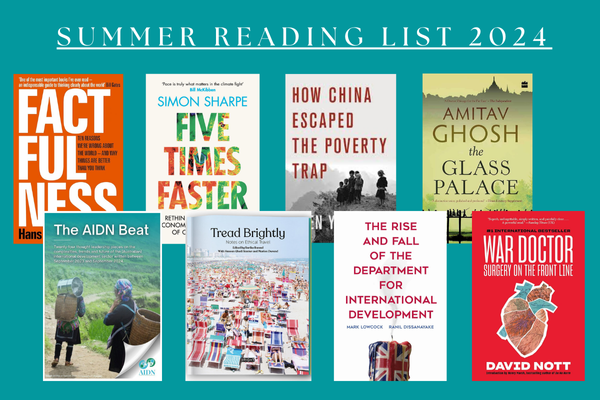
The Glass Palace
Anna Demant, AIDN Advisory Council member, recommends: “Glass Palace” by Amitav Gosh.
Set in Burma during the British invasion of 1885, this masterly novel tells the story of Rajkumar, a poor boy lifted on the tides of political and social chaos, who goes on to create an empire in the Burmese teak forest. When soldiers force the royal family out of the Glass Palace and into exile, Rajkumar befriends Dolly, a young woman in the court of the Burmese Queen, whose love will shape his life. He cannot forget her, and years later, as a rich man, he goes in search of her. The struggles that have made Burma, India, and Malaya the places they are today are illuminated in this wonderful novel.
“This text traces the modern history of Myanmar/Burma through one extended family. It is an incredible book, and one that I always return to” – Anna.
Learn more: https://www.goodreads.com/en/book/show/77103
———————————————————————————————————————————————————-
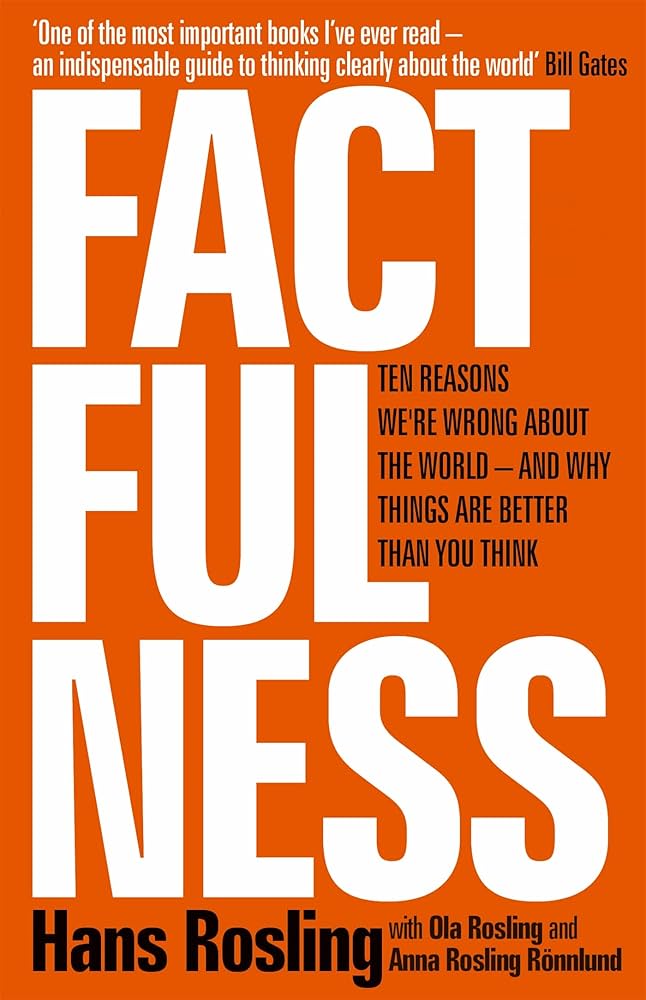
Factfulness: Ten Reasons We’re Wrong About the World – And Why Things Are Better Than You Think
Jeff Harris, Professor of Public Health at the University of Washington and AIDN Insight Tour guest recommends: “Factfulness: Ten Reasons We’re Wrong About The World – And Why Things Are Better Than You Think” by Hans Rosling.
In Factfulness, Professor of International Health and a man who can make data sing, Hans Rosling, together with his two long-time collaborators Anna and Ola, offers a radical new explanation of why this happens, and reveals the ten instincts that distort our perspective.
“It’s a hopeful look at the progress in human development over the past 40 or so years. Covers poverty, women’s education, and a range of health topics. While what we saw on the [recent AIDN Insight] trip was inspiring, the remaining challenges can appear daunting. This book puts things in perspective with solid data and offers hope for more progress. The book is short and full of stories, along with the data. A pleasant read” – Jeff.
Learn more: https://www.amazon.co.uk/Factfulness-Reasons-Wrong-Things-Better/dp/1473637465
———————————————————————————————————————————————————-
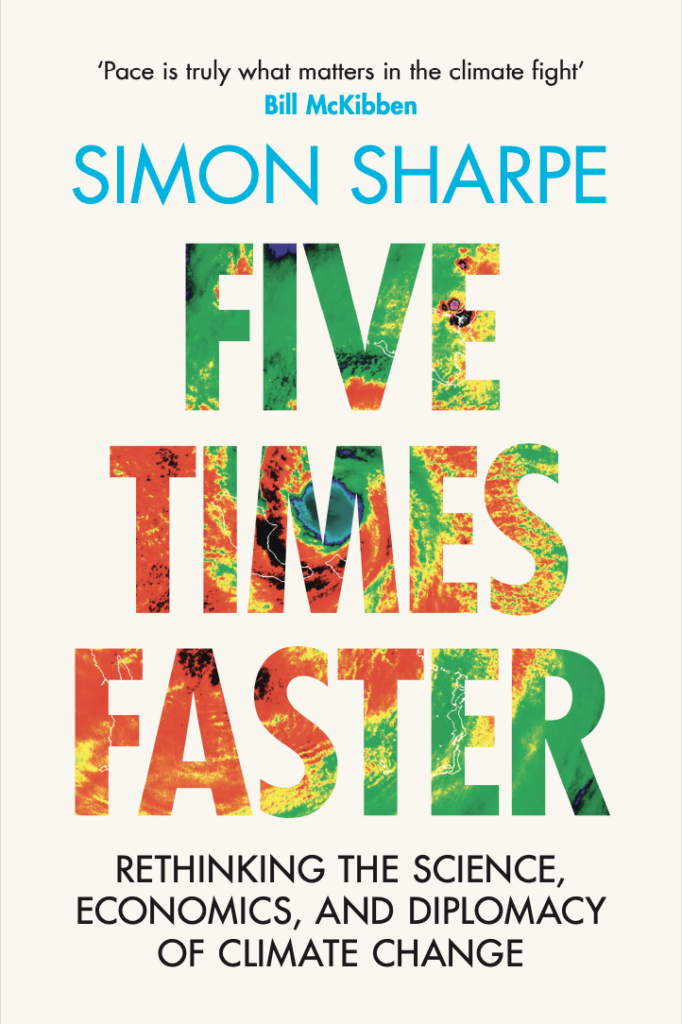
Five Times Faster: Rethinking the Science, Economics, and Diplomacy of Climate Change
Faith Considine, Development Policy Officer, recommends “Five Times Faster: Rethinking the Science, Economics, and Diplomacy of Climate Change” by Simon Sharpe.
Five Times Faster is an inside story from Simon Sharpe, who has spent ten years at the forefront of climate change policy and diplomacy. He argues that in our fight to avoid dangerous climate change, science is pulling its punches, diplomacy is picking the wrong battles, and economics has been fighting for the other side. This provocative and engaging book sets out how we should rethink our strategies and reorganise our efforts in each of these fields, so that we can act fast enough to stay safe.
“Five Times Faster is essential reading for anyone concerned about climate change. Packed with bold ideas and practical strategies, it shows how we can make a bigger impact—and, most importantly, how to do it faster” – Faith.
Read more here: https://fivetimesfaster.org/
———————————————————————————————————————————————————-
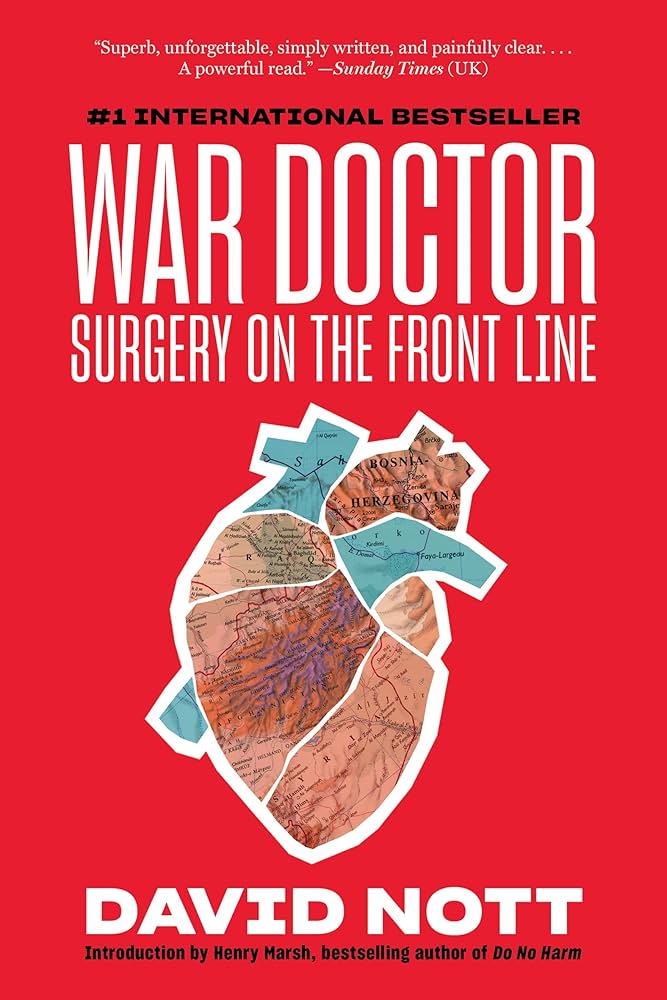 War Doctor: Surgery on the Front Line
War Doctor: Surgery on the Front Line
Elizabeth Daley, Chair of the Board of the Land Portal Foundation, recommends “War Doctor: Surgery on the Front Line” by David Nott.
For more than twenty-five years, David Nott has taken unpaid leave from his job as a general and vascular surgeon with the NHS to volunteer in some of the world’s most dangerous war zones. From Sarajevo under siege in 1993, to clandestine hospitals in rebel-held eastern Aleppo, he has carried out life-saving operations and field surgery in the most challenging conditions, and with none of the resources of a major London teaching hospital. Driven both by compassion and passion, the desire to help others and the thrill of extreme personal danger, he is now widely acknowledged to be the most experienced trauma surgeon in the world. But as time has gone on, David Nott began to realize that flying into to a catastrophe – whether war or natural disaster – was not enough. Doctors on the ground needed to learn how to treat the appalling injuries that war inflicts upon its victims. War Doctor is his extraordinary story.
“One of the most interesting things about Nott, which jumps out of the pages, is not only the conditions that doctors in conflict zones have to deal with (also in any kind of situation with lack of infrastructure and overwhelming medical problems, but worst in wars), but also Nott’s commitment to teaching and training local surgeons to do the same work as him. To pass on his skills. It’s a hard read in places but massively inspiring. I couldn’t put it down” – Elizabeth.
Learn more: https://www.amazon.com.au/War-Doctor-Surgery-Front-Line/dp/1509837027
———————————————————————————————————————————————————-
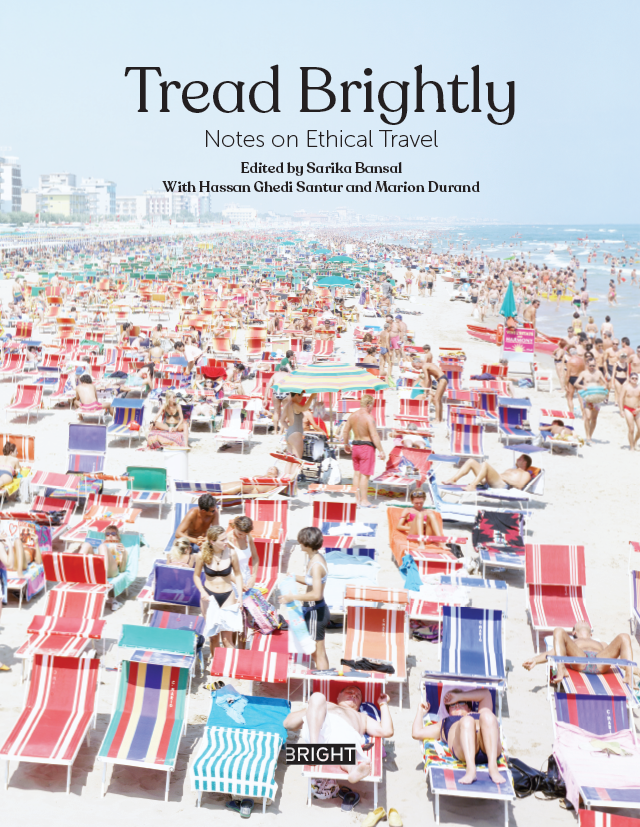
Tread Brightly
Emily Umbers, AIDN’s Marketing and Operations Manager, recommends “Tread Brightly” – a series of essays edited by Sarika Bansal (who AIDN was thrilled to be able to learn from on the 2024 Insight Tour to Kenya and Tanzania).
This book of seventeen original essays and photo-essays, edited by Sarika Bansal, gets to the heart of what it means to travel ethically. Are there ways we can turn travel from passive consumption to an active exchange? Is it possible for our travel to leave a positive impact on the lives of others? “Tread Brightly” discusses the ethics of orphanage tourism, cruise ships, and study abroad programs. It asks how one’s identity as a traveler—like one’s country of origin, gender, and race—impacts a travel experience. It also considers the climate consequences of non-essential travel.
Learn more: https://www.treadbrightlybook.com/
———————————————————————————————————————————————————-

How China Escaped The Poverty Trap
Matias Nestore, Senior Research and Evaluation Associate at The Life You Can Save, recommends “How China Escaped The Poverty Trap” by Yuen Yuen Ang.
Acclaimed as “game changing” and “field shifting,” How China Escaped the Poverty Trapadvances a new paradigm in the political economy of development and sheds new light on China’s rise. Ang systematically reenacts the complex process that turned China from a communist backwater into a global juggernaut in just 35 years. Contrary to popular misconceptions, she shows that what drove China’s great transformation was not centralized authoritarian control, but “directed improvisation”—top-down directions from Beijing paired with bottom-up improvisation among local officials.
“By examining China’s development trajectory, the text calls for a fundamental shift in how we approach international development. The Chinese model, which the author refers to as “directed improvisation,” combines top-down guidance from Beijing with localized, context-specific problem-solving. The book critiques deterministic, technocratic, and one-size-fits-all “best-bet” approaches to development, emphasizing instead the complexity and interdependence of human systems and the need for adaptive, flexible solutions in addressing development challenges” – Matias.
Learn more: https://www.amazon.co.uk/Escaped-Poverty-Cornell-Studies-Political/dp/1501700200
———————————————————————————————————————————————————-
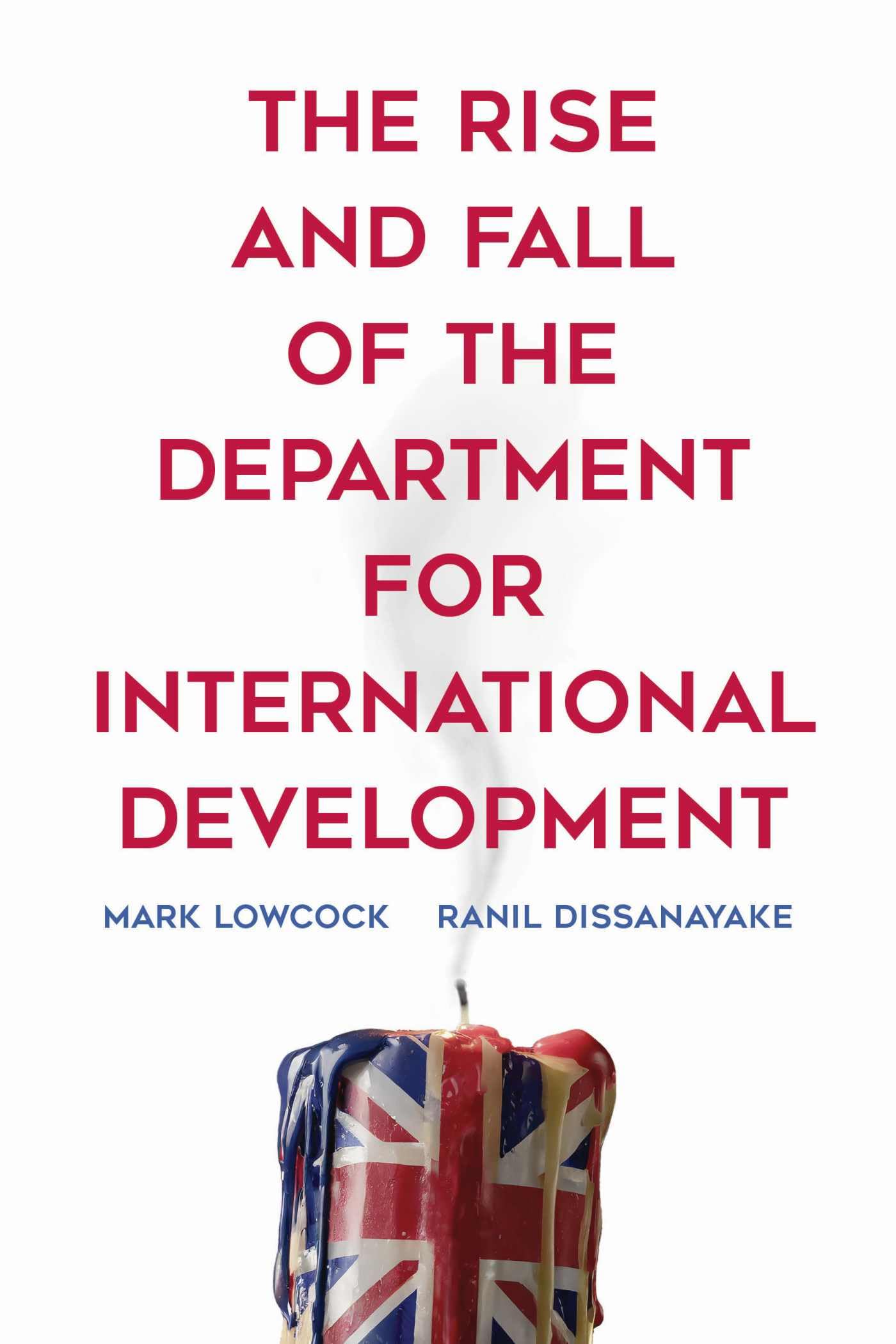
The Rise and Fall of the Department for International Development
Hannah McNicol, AIDN’s Communications and Reserch Lead, recommends “The Rise and Fall of the Department for International Development” by Mark Lowcok and Ranil Dissanayake.
When Boris Johnson announced the creation of the Foreign, Commonwealth and Development Office in June 2020, he signalled the dissolution of the UK’s Department for International Development (DFID) after nearly 25 years. DFID had a stellar international reputation, a respected body of expertise, and an impressive record improving lives. Informed by the authors’ own experiences at DFID as well as interviews with more than a hundred former DFID ministers and staff, traces DFID’s trajectory from its origins to its unravelling. As leaders worldwide consider the future of international development, the book provides critical insights into the institutional structures that work best to deliver results.
“Whilst the book primarily focuses on DFID and the UK, it is also a great text for Australian international development audiences due to our continued close relations with the UK. It also reinforces how departments of aid/development are intrinsically linked with politics and elections” – Hannah
Learn more here: https://www.cgdev.org/publication/rise-and-fall-department-international-development
———————————————————————————————————————————————————-
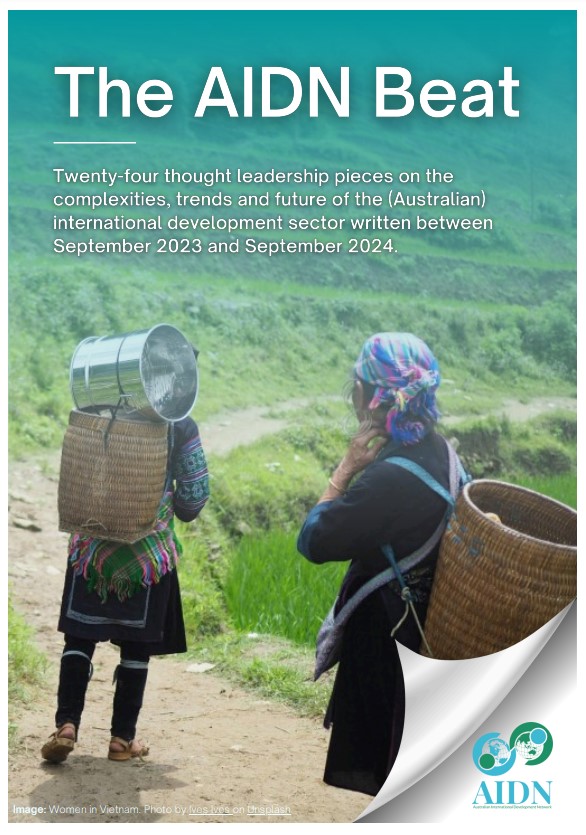
The AIDN Beat one year e-booklet
And finally, AIDN’s Executive Director, Julie Rosenberg, recommends exploring The AIDN Beat one year anniversary e-booklet.
“Packed full of fantastic insights from gender equality, to MEL, to education or war, The AIDN Beat e-booklet is perfect for downloading onto your tablet this summer. It is also a great way to find out about other organisations working in our sector or to meet interesting colleagues you might want to reach out to!” – Julie.
Learn more here: https://aidnetwork.org.au/wp-content/uploads/2024/10/Celebrating-one-year-of-The-AIDN-Beat.pdf
